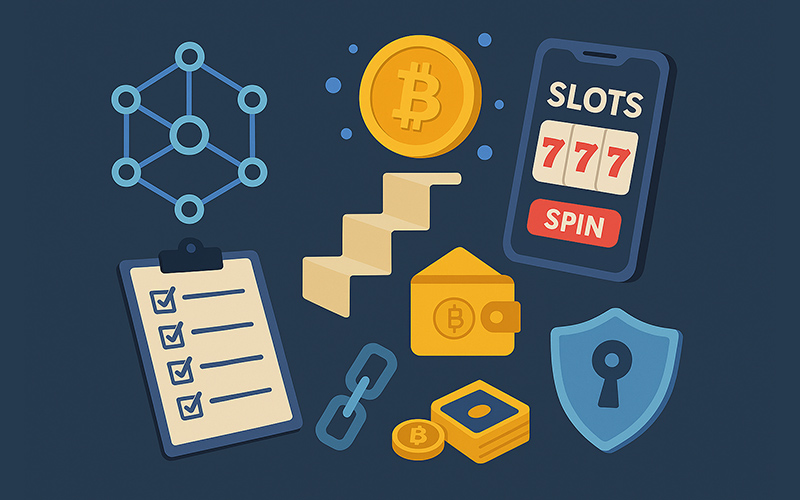Crypto Gambling in Brazil: Market in Transition
Brazil has transitioned from a crypto-friendly grey zone to a regulated market, drawing a clear line under digital-asset payments. Crypto deposits and withdrawals were once entirely meant for offshore play. Now, the country forbids them outright.

Why the Door on Crypto Got Closed
Normative Ordinance No. 615 makes it explicit. Licensed operators must not accept payments in the form of cryptocurrency. The measure went live alongside the launch of Brazil’s legal iGaming market on 1 January 2025 and switched only to electronic transfers.
The policy intent is straightforward. Lawmakers want auditable money flows, consistent oversight, and predictable consumer outcomes. In practice, that means fiat rails, bank-friendly reconciliation, and documentation good enough to withstand financial scrutiny and regulatory audits. The Brazilian government did not want to punish innovation, but to remove opacity from a mass-market system.
Key results of the action:
- greater oversight of financial flows;
- simplified supervision for regulators and banking partners;
- reduced leakage to the black market and unlicensed operators;
- stronger AML/KYC enforcement with standardised documentation;
- clearer paths for dispute resolution and refunds.
How Effective Crypto was before Legalisation

Prior to the current framework, high digital penetration and the absence of a fully regulated iGaming environment made peer-to-peer crypto transactions attractive. This was particularly true when players wanted to bypass local verification.
Between the initial sports betting legalisation in 2018 and the passage of Law No. 14,790/2023 in December 2023, crypto-based casinos were a niche demand. They were quick to onboard, low-friction, and marketed as borderless.
At the same time, market estimates indicate that crypto accounts for only a small fraction of Brazil’s gambling activity. Roughly 0.7% of transactions were routed through digital-asset rails. As a result, policymakers focus on mainstream rather than niche use cases.
Enforcement and Adaptation
Brazil’s approach has led to a significant legal shift. The Central Bank is monitoring crypto exchanges to flag suspicious flows linked to unlicensed platforms. This aligns financial controls with licensing objectives. Payment friction is being re-engineered to push funds through supervised rails and keep them there.
Licensed operators, meanwhile, focus on localisation and strict KYC to build trust. If onboarding is smooth, cashier messaging is clear, and withdrawals are predictable, players have fewer reasons to drift to offshore sites. That said, some industry voices warn that a hard ban may push some users back to unregulated crypto sites. This is the tension that regulators and operators must manage.
A practical sequence for compliance that also supports growth:
- Rebuild the cashier system to support approved electronic transfers and clearly retire crypto options across all channels.
- Tighten KYC/AML and keep immaculate records to align with the documentation standards implicit in fiat oversight.
- Calibrate bonuses, limits, and CRM to local behaviours rather than anonymity-driven segments.
- Explain the benefits of fiat rails like faster resolutions, cleaner refunds, and stronger consumer protection.
- Implement transaction monitoring tuned to Brazil-specific patterns to detect attempted circumvention.
- Prepare for audits with consolidated data trails, vendor attestations, and up-to-date internal policies.
The cashier becomes clearer, but also more structured:
- no anonymous crypto options;
- stronger verification steps at onboarding and payout;
- bank-friendly refunds with documented timelines;
- fewer failed or disputed transactions;
- more consistent protection from unlicensed destinations if channelled correctly.
Why Ban Now
The government’s goal is to gain better command over money flows and squeeze the black market. Experts note that crypto can provide less regulatory control than fiat payments, even if transactions are technically traceable. The point is not whether crypto is inherently good or bad, but whether it fits a mass-market compliance model in a newly regulated environment. In Brazil’s view, fiat rails answer that question today.
This Brazilian situation does not automatically become a universal blueprint. The global crypto-gambling market is estimated to be around $3.5 billion based on observed transactions. This is far below the overall $81.4 billion figure supported with fiat currency.
Moreover, Brazil’s policy is adapted to national priorities, aiming to structure the market, protect consumers, and disrupt illegal betting supply lines.
The Main Things about Gambling with Digital Funds in Brazil
The country that once was a crypto-tolerant grey area has become a fiat-only, supervised ecosystem. The shift reduces opacity, simplifies oversight, and challenges operators to compete on trust, localisation, and customer care rather than payment novelty.
Key aspects about the ban and shift:
- Normative Ordinance No. 615 restricts crypto payments and mandates electronic transfers from 1 January 2025.
- The goal is to achieve transparent, auditable money flows and stronger AML/KYC measures across licensed operators.
- Despite earlier visibility, crypto represented only about 0.7% of Brazilian gambling transactions.
- Enforcement aligns payments and licensing, while operators focus on localisation and clean onboarding to channel users.
- A subset of players may still test offshore crypto sites, so effective communication and a positive user experience are critical.
If you are planning Brazil-facing operations, align your cashier, compliance stack, and player communications with the new reality, and position fiat rails as a reliability feature rather than a downgrade.
Check the information used to contact us carefully. It is necessary for your safety.
Fraudsters can use contacts that look like ours to scam customers. Therefore, we ask you to enter only the addresses that are indicated on our official website.
Be careful! Our team is not responsible for the activities of persons using similar contact details.



